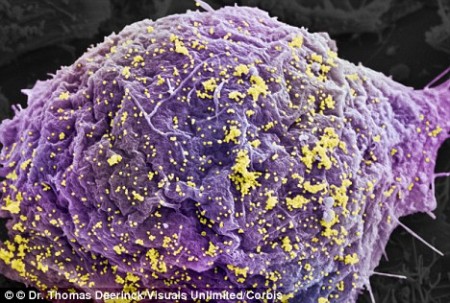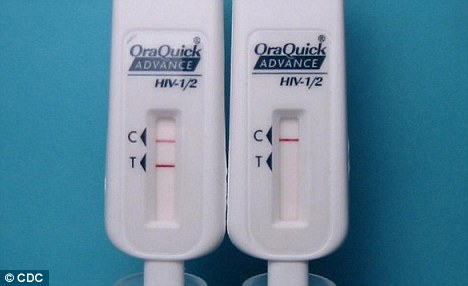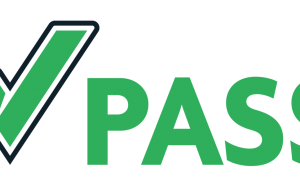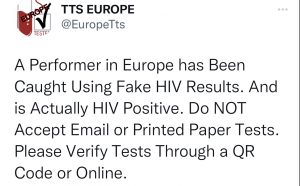An over-the-counter HIV test that can be taken at home was reasonably safe and effective for determining whether someone has the AIDS virus, according to experts.
The 17-member, Food and Drug Administration advisory committee voted unanimously that the drug’s ability to prevent new HIV infections and provide HIV-positive people with access to medical care and social services outweighed the risks of false results.
The recommendations will now be considered by agency regulators as they determine whether the product, known as the OraQuick In-Home HIV Test, made by OraSure Technologies Inc, should be approved.

Ground-breaking: The HIV test which can be taken at home was approved by the Food and Administration Panel in the U.S.
Advocates said the in-home test would provide a new and potentially powerful strategy for attacking an HIV epidemic that has infected nearly 1.2 million people in the U.S. and increases by 50,000 new cases each year.
The company said it would expect the product to retail for less than $60, if approved and marketed over the next few months.
Panel members urged OraSure to undertake post-marketing studies to ensure that the test is available to under-served populations in a manner that would link those who use the kit to the healthcare services including confirmatory tests at professional settings.
A home version of the professionally administered OraQuick Advance test, the new product is an oral swab rapid test that produces results within 20 minutes.
The test should not be taken until 90 days after an individual last had engaged in activity that put them at risk.
FDA officials said the OraQuick In-Home test showed a high degree of effectiveness in detecting HIV infection.

Ending the stigma: An HIV-infected blood cell. Advocates urged the FDA panel to back the test by OraSure which is expected to market at around $60
But some research data suggested the test lacked sufficient sensitivity to avoid false negative results.
False negatives were of particular concern because they could lead HIV-positive individuals to take fewer precautions, raising the danger that they will engage in unprotected sex.
Some panel members argued for strongly worded labeling about false results and procedures to link those who telephone a company hotline with questions with healthcare professionals.
U.S. health officials told the panel that home-testing could help get needed healthcare to HIV-positive individuals earlier.
At present, only 62 per cent of those with HIV are linked to the healthcare services and just 28 per cent have access to drugs capable of suppressing the infection.
The panel heard overwhelmingly supportive public testimony from more than two-dozen witnesses including HIV activists, black community representatives and public health experts, some of whom received money and other assistance from OraSure.
The witnesses urged the panel to back the test as a means of eliminating HIV’s public stigma, a main barrier to testing, by making the home test just another item that can be purchased at a local pharmacy along with aspirin or condoms.
Whitney Engeran of the AIDS Healthcare Foundation, a LA-based group that provides care for nearly 170,000 HIV patients, said the potential ability to break down the stigma outweighed the product’s shortcomings.
Mr Engeran said: ‘The perfect cannot be the enemy of the good.’
One witness, who represented healthcare providers, urged the FDA to withhold approval until further study can raise the test’s accuracy to a level more in line with those administered in clinics and other professional settings.
Last week, another FDA panel recommended regulatory approval for Gilead Sciences Inc’s HIV drug, Truvada, as the first pill treatment for protecting uninfected individuals.
Trading in OraSure’s shares was halted for the FDA meeting after closing on Monday at $9.10.
Source: MailOnline






